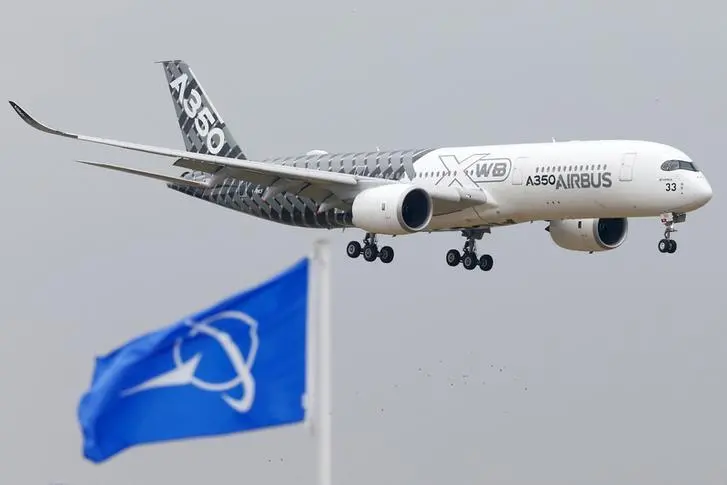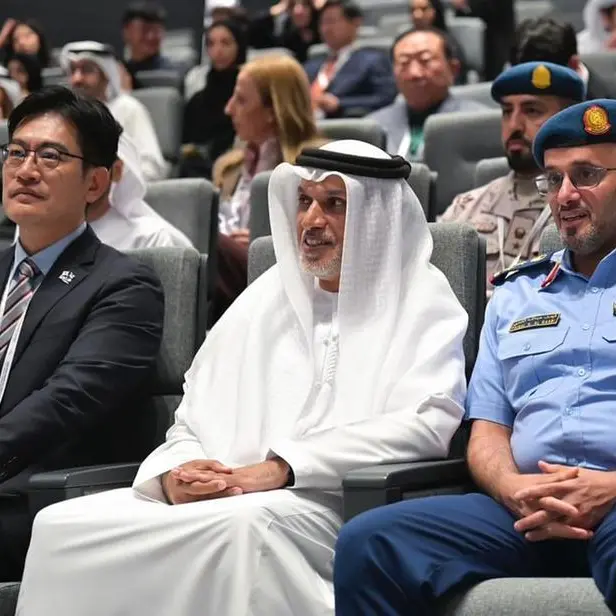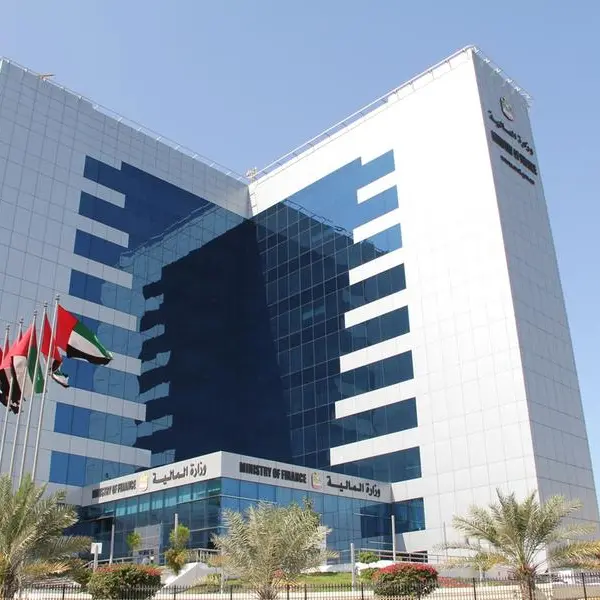PHOTO
LONDON - Britain and the United States agreed on Thursday to resolve a long-running trade dispute over aid for planemakers Airbus and Boeing and focus on tackling Chinese subsidies, echoing a five-year tariff truce announced by Washington and Brussels.
Together, the matching deals draw a line under 17 years of battles at the World Trade Organization and establish a common front against "non-market" funding in a reference to China's nascent aerospace industry.
The dispute had triggered a months-long transatlantic tariff war hitting industries such as Scotch whisky until a temporary tariff ceasefire was called this year to ease negotiations.
Tariffs will be suspended for a further five years while governments also pledge to provide any funding on market terms, lifting a perennial source of transatlantic tensions.
"This will support jobs across the United Kingdom and is great news for Scotch whisky and other exports including aerospace who will no longer face punitive tariffs," British trade minister Liz Truss said on Twitter.
The Scotch Whisky Association said its members had lost 600 million pounds ($836.64 million) because of tariffs. In the United States, the Distilled Spirits Council said American whiskey was still being hurt by tariffs in a separate dispute on steel and aluminium.
The UK-U.S. aerospace deal came two days after the EU reached a truce with Washington over aircraft subsidies, and capped a week of summit diplomacy aimed at countering the rising influence of China.
United States Trade Representative Katherine Tai called it "a model we can build on to ensure fair competition and address common challenges from China and other non-market economies".
AIRBUS JOBS
The United States and Europe had been battling since 2004 over subsidies to Boeing BA.N and Airbus AIR.PA , in the largest ever corporate trade dispute.
Britain has since left the European Union and Thursday's almost identically worded agreement achieves many of the same results as the EU-U.S. deal.
Britain, whose ability to negotiate trade deals independently of the EU is central to its new "global Britain" stance, has a long history as one of four core nations involved in Airbus, a relationship that predated its EU membership, and its UK factories make the wings for Airbus commercial jets.
In December, Britain and the United States came close to a standalone aerospace deal that could have forced the hand of Brussels in its own talks with Washington, but drew back over concerns over UK jobs, Reuters reported.
An official familiar with the talks said it had not been possible at that time to reach a balanced deal.
Airbus, which has 14,000 staff in Britain, has repeatedly warned that it could shift work abroad, restricting Britain's ability to negotiate independently over aerospace.
The more limited truce agreed this week leaves a system of government loans for Airbus intact on paper, but commits Britain, France, Germany and Spain to issue any new loans for Airbus development on market terms still to be defined.
Both sides had won partial victories and claimed to have complied with thousands of pages of rulings, but this week's deals set aside years of legal bickering at the WTO, which ruled past Airbus loans were illegal while rapping support for Boeing.
Separately, Britain is keen to agree a free trade agreement with the United States, as it seeks new relationships around the world following its exit from the European Union in 2020. ($1 = 0.7172 pounds)
(Reporting by Alistair Smout and Tim Hepher; Additional reporting by Andrea Shalal and William James Editing by Guy Faulconbridge, Frances Kerry and Barbara Lewis) ((alistair.smout@thomsonreuters.com; +44 207 542 7064))





















